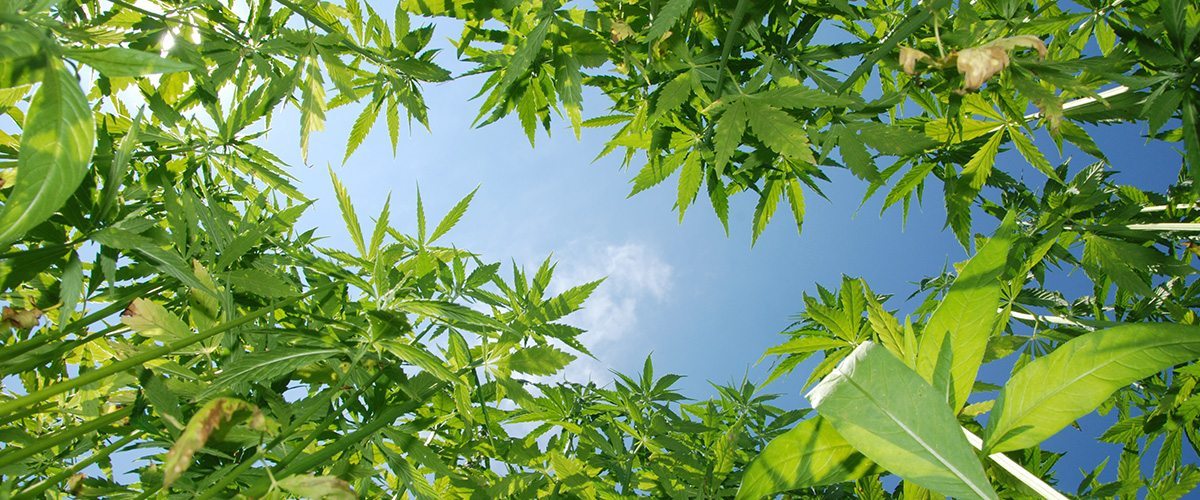[vc_row][vc_column][vc_column_text]
The Nevada governor signed into law a bill that expands the state’s hemp program to allow for commercial production of products like CBD oil.
Hemp farmers in Nevada will soon be allowed to produce and handle hemp to produce industrial and consumer products. Senate Bill 396, signed into law earlier this month by Gov. Brian Sandoval, expands the state’s industrial hemp program to allow the crop to be grown for commercial, rather than just research, purposes.
Nevada’s original hemp law, passed in 2015, gave the Nevada Department of Agriculture and specific institutions of higher learning the approval to cultivate industrial hemp for research purposes. The new law modifies and expands that law to allow for a separate cultivation program that gives farmers and corporations authorization to cultivate hemp for agricultural purposes and to use it to commercially produce hemp products like cannabidiol (CBD) nutritional supplements, foods and other goods.
Hemp is an environmentally friendly, renewable crop grown for its seeds and stalks. Harvested for centuries for food, oil, and industrial purposes like paper, textiles and cordage, hemp can be used to produce over 25,000 products. Unlike marijuana, hemp contains only trace levels of the psychoactive compound tetrahydrocannabinol (less than 1 percent), so it doesn’t cause a high when consumed.
Despite hemp’s long history in the United States, growing the crop had been prohibited for decades before President Obama signed into law the 2014 Farm Bill. Section 7606 of that bill gave states authorization to pass laws allowing state departments of agriculture and universities to grow hemp for research or pilot programs. More than 30 states have since passed hemp-related legislation. Nevada joins California, Colorado, Maine, Massachusetts, Oregon, and Vermont as states that have passed commercial hemp legislation that extends beyond that which is allowed under federal law.[/vc_column_text][/vc_column][/vc_row][vc_row][vc_column][vc_single_image image=”17298″ img_size=”1200×250″ onclick=”custom_link” img_link_target=”_blank” link=”https://www.medicalmarijuanainc.com/why-do-we-refer-to-hemp-as-industrial-hemp/”][/vc_column][/vc_row][vc_row][vc_column][vc_column_text]As of now in Nevada, 19 licensed producers cultivate approximately 500 acres of hemp for research. An agricultural department spokesman did not say how many more growers would be added with the expansion. The new measure also creates distinct licensing programs for cultivators and processors of industrial hemp seed.
The U.S. hemp market was valued at $688 million in 2016, a 25 percent jump from the year before. Hemp CBD products, such as Medical Marijuana, Inc.’s Real Scientific Hemp OilTM, made up $130 million of the year’s total sales.
Demand for hemp products in the U.S. continues to grow. Nearly all hemp used commercially still must be imported, inhibiting American farmers. However, there has been a renewed effort to end federal prohibition on hemp farming in the U.S. The increasing number of states ignoring federal law to legalize commercial hemp production may help set the stage for the eventual passing of the Industrial Hemp Farming Act. The legislation, introduced in 2015, would remove hemp from the Controlled Substances Act and allow its cultivation under federal law.
Senate Bill 396 was introduced by a bipartisan coalition of 12 legislators in March. It then passed the Senate by a 20-0 vote and was approved by the Assembly 34-5 before it was passed on to Gov. Sandoval to sign.
Learn more about the differences between hemp and marijuana by visiting our education page. Keep up with the latest cannabis industry developments through our news feed.[/vc_column_text][/vc_column][/vc_row]






